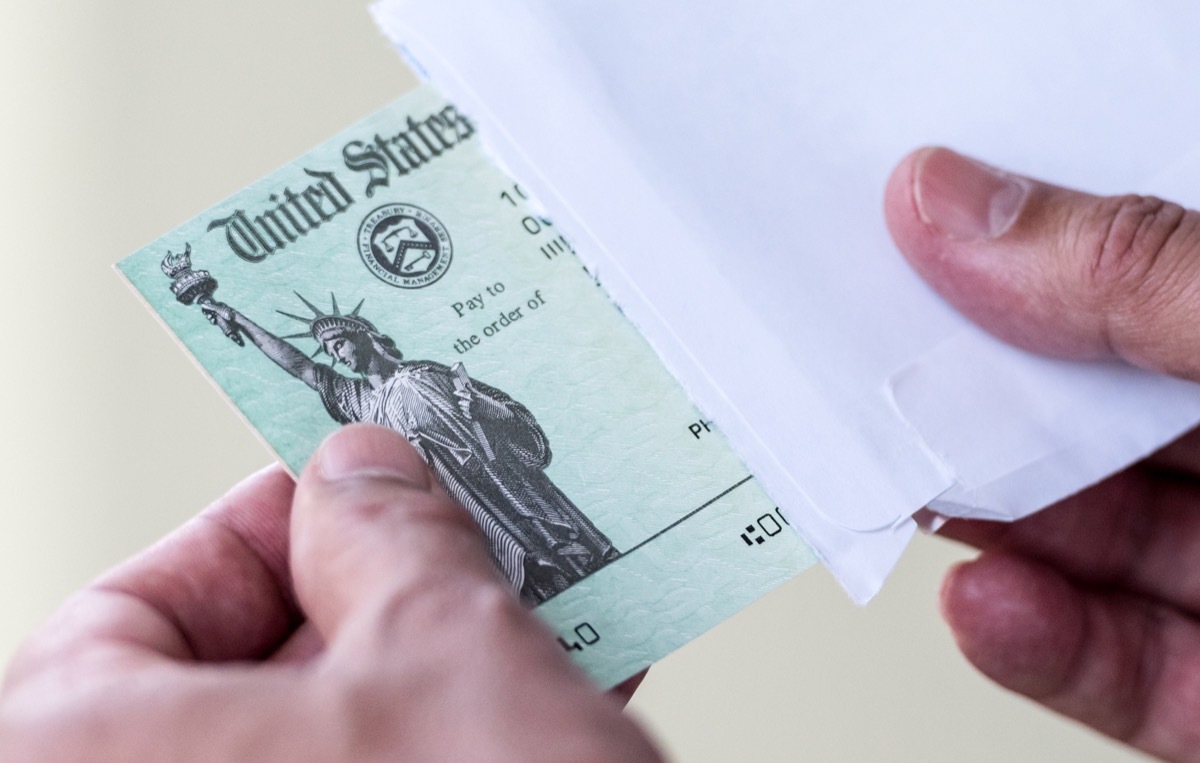The IRS Just Warned Taxpayers Not to Do This Right Now
The agency is sending a new alert days before the tax deadline.

With less than a week until the tax deadline, millions of people around the U.S. are rushing to file their 2021 tax return by April 18. The Internal Revenue Service (IRS) has estimated that it should receive more than 160 returns this year, but as of April 2, only around 91 million of those had come in. Whether you filed your taxes earlier this year or you're panicking to get your return in at the last minute, the IRS has a new warning about the one thing you should not do right now. Read on to find out what the agency is alerting taxpayers to just days before end of the 2022 tax season.
RELATED: The IRS Just Gave This Urgent Last-Minute Warning to Taxpayers.
The IRS is warning taxpayers that they cannot call the agency to get their refund faster.

The IRS released a new warning for taxpayers on April 12 to try to correct certain tax refund myths as the filing deadline grows closer. According to the agency, calling or trying to meet with the IRS will not help you get your tax refund back any faster—despite this being a common rumor that circulates on social media every tax season.ae0fcc31ae342fd3a1346ebb1f342fcb
"Many taxpayers mistakenly believe the commonly held myth that speaking with the IRS by phone or visiting in-person at an IRS Taxpayer Assistance Center will expedite their tax refund," the agency explained, also noting that its centers only operate by appointment and "inquiring about a tax refund's status does not expedite the process."
You can't call other tax professionals to get your refund sooner either.

Trying to target other tax professionals in hopes of getting your refund faster won't work either. "Contacting a tax professional will not speed up a refund," the IRS warned. "Tax professionals cannot move up a refund date nor do they have access to any 'special' information that will provide a more accurate refund date."
The agency also warned against trying to expedite your refund through a tax transcript. "Ordering a tax transcript will not inform taxpayers of the timing of their tax refund, nor will it speed up a refund being processed," the IRS said.
RELATED: For more financial advice delivered straight to your inbox, sign up for our daily newsletter.
You can check the status of your refund online.

According to the IRS, the easiest way to figure out when you will actually receive your refund is to use the agency's online Where's My Refund tool. This service, which is available both on the agency's website and through the IRS2Go mobile app, "provides taxpayers the same information and issue date information that IRS assistors and tax professionals have," the agency explained.
You can start checking the status of your refund through this tool 24 hours after you've received your e-file acceptance notification following the submission of your tax return. But the IRS has warned taxpayers that the Where's My Refund tool is only updated once every 24 hours, usually overnight. "So there's no need to check the status more than once a day," the agency further explained. If you don't have internet access, the IRS does advise you to call for your status—but only the automated refund hotline.
The IRS issues most refunds in less than a month.

The IRS said it is still processing 2021 tax returns and delivering refunds to taxpayers, but as of April 1, the agency has already sent out more than 63 million refunds totaling over $204 billion. According to the agency, nine out of 10 refunds have been issued in less than 21 days. If you check your Where's My Refund tool and don't see a deposit date, however, there's a chance that your refund might take longer than this.
"While the IRS issues most refunds in less than 21 days, it's possible a refund may take longer for a variety of reasons, including when a return is incomplete or needs further review," the agency explained. "Delays can be caused by simple errors like an incomplete return, transposed numbers or when a tax return is affected by identity theft or fraud."
RELATED: The IRS Now Won't Let You Do This Until After April 18.

Nangungunang 10 Pinakamahusay na Pagsasayaw Sa Isang Pole Sa Isang Palabas ng Mga Talento Sa Buong Mundo

17 ang mga immune boosters ay mas mahusay kaysa sa Emergen-C.
